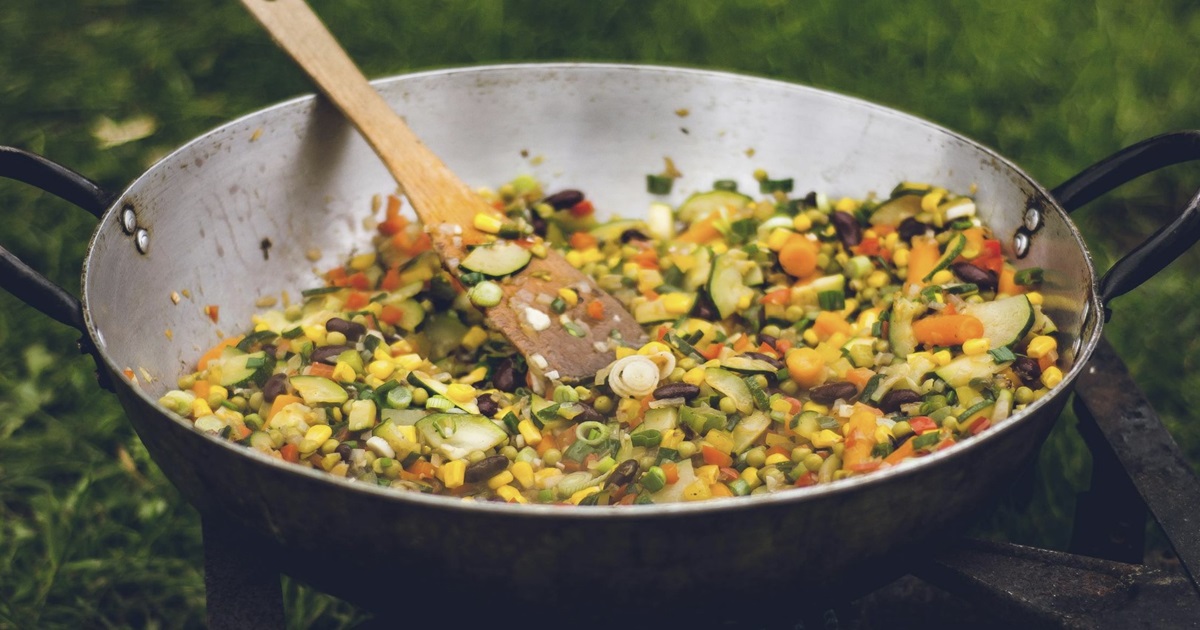These 10 Leftovers Could Make You Sick

source: Pexels
We have a big family, so we almost never have leftovers. That’s good because I don’t like dealing with putting them in containers and stashing them away in the fridge. But whenever we have guests over or during the holidays, we end up with mountains of leftovers. I used to dive into them without a second thought, until I learned the hard way that certain foods can actually make us sick if we don’t handle them properly post-celebration. Let me share some insights on this, mixing in a bit of my own experience along the way.

Why Proper Storing Is Important
Before we get into the specifics, let’s talk about why proper storage is crucial. You see, bacteria love to party at room temperature. The danger zone, as experts call it, is between 40°F and 140°F, where bacteria multiply rapidly. If food is left out for too long or not stored correctly, it can become a breeding ground for pathogens that can make you seriously ill. I learned this the hard way after a summer BBQ, where the potato salad sat out a bit too long. Let’s just say the night was memorable for all the wrong reasons.

Eggs
Eggs were my first surprise. We all know not to leave them out of the fridge for too long, but I was shocked to learn that dishes containing eggs, like quiches or certain desserts, need to be refrigerated quickly. There was this one time I made a big batch of breakfast burritos with scrambled eggs, left them out for a couple of hours, and ended up regretting it. Now, I make sure anything eggy goes straight into the fridge.
Potatoes
Cooked potatoes are another one. They’re often overlooked because they seem so harmless, right? Wrong. Potatoes in foil, like those delicious baked ones from our family gatherings, can become anaerobic environments that harbor botulism. The first time I heard about this, I was flabbergasted. All those times leaving potatoes out to cool without a care in the world…

Beets
Beets, much like potatoes, can pose a risk if not stored properly after cooking. They’re not as common in our household, but I’ve started to treat them with the same caution I do potatoes, especially after making a huge beet salad for a potluck and learning about the risks afterwards.
Rice
Rice is a staple in our home, and it turns out it’s one of the riskiest leftovers. If rice is left at room temperature, the bacteria can multiply and produce toxins. I had no idea until a friend shared her food poisoning saga from a rice dish left out overnight.

Spinach
I always thought reheating my spinach dishes was a good way to avoid waste, but now I know it’s better to enjoy them fresh or store them correctly and consume them cold if possible.
Cold-Pressed Oils
I’m a big fan of cold-pressed oils for their health benefits, but I didn’t realize that improper storage could turn these healthy fats into harmful ones. These oils can go rancid quickly if not stored properly, potentially creating harmful free radicals.

Chicken
Chicken and other poultry must be stored and reheated to the right temperature to avoid salmonella and other bacterial infections. After a nasty bout of food poisoning from improperly reheated chicken leftovers, I’m now meticulous about how I store and reheat poultry.
Buffet Food
Buffet food holds a special place in my heart and my gastrointestinal nightmares. With the variety and the time it spends out, it’s a breeding ground for bacteria. My rule now? If it’s been out for more than two hours, it’s not going back in my fridge.

Oily Foods
Oily foods, especially deep-fried delights, can become rancid if not stored correctly. Rancid fats are not only unpleasant to taste but also harmful to your health. I’ve learned to enjoy these foods fresh and avoid keeping them for too long.
Seafood
Last but not least, seafood. This one’s tricky because it spoils so easily. After an incident involving leftover sushi that I’d rather forget, I now treat seafood with the utmost respect. It’s either eaten fresh or not at all.

Learning about the proper handling of leftovers was a game-changer for me. It’s not just about avoiding waste or enjoying a good meal; it’s about keeping my family and me safe from foodborne illnesses. So, the next time you’re faced with a fridge full of leftovers, remember that proper storage is key. And when in doubt, the old adage “when in doubt, throw it out” can save you from a world of discomfort.